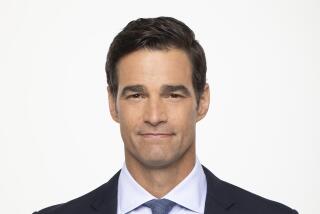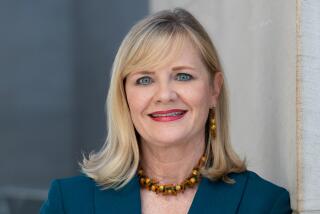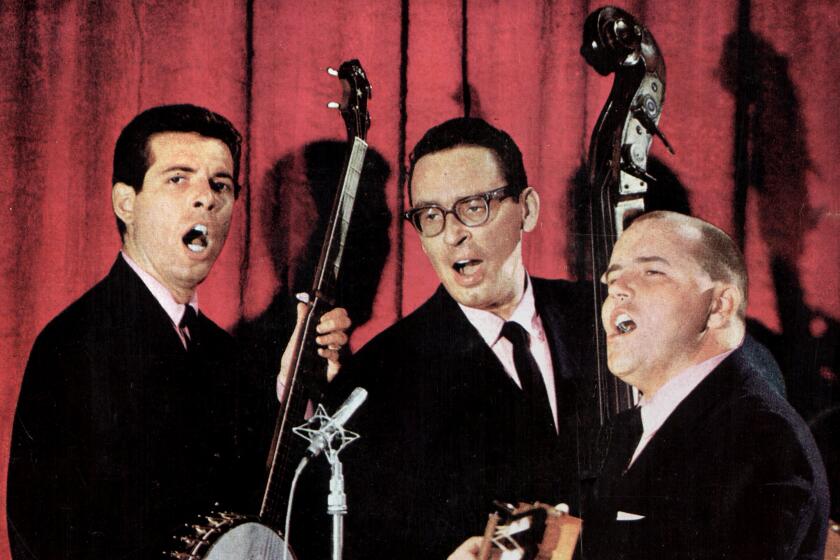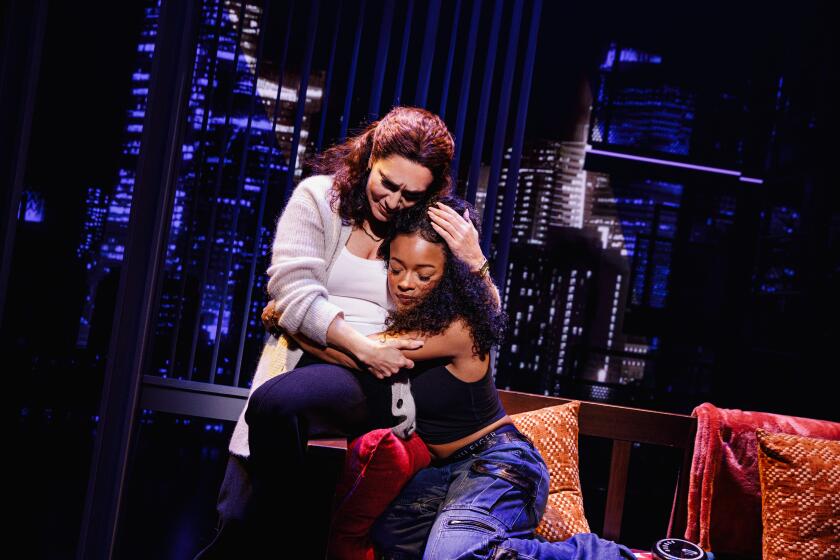Germans Jeering Opera’s Bow to Islamic Extremists
Mozart has survived grandiose conductors and abstract interpretations, but the librettos for his operas never cast Islamic radicals threatening a skittish theater company.
On a day of messy drama and furious debate over free speech, German Opera in Berlin reaffirmed Tuesday its decision not to revive a production of Mozart’s “Idomeneo” out of fear of inciting Islamic extremists over a scene showing the severed head of the prophet Muhammad.
The cancellation of a work that has run intermittently since 2003 drew a rebuke from politicians and theater critics, who regarded it as a defeat for creative expression and a victory for militant Islamists over liberal European tradition.
The opera company’s decision comes as Muslim tensions in Europe have risen since the publication last year of Danish cartoon caricatures of Muhammad and recent comments by Pope Benedict XVI about Islam and violence.
“There have been no concrete terrorist threats against the opera,” said Michael Nerkle, a Berlin police spokesman. “We received an anonymous call that certain scenes might be offensive to Muslims. In light of what happened against the Muhammad cartoons, it was appropriate to inform the opera house,” he said, referring to the outbreaks of violence that followed publication of the caricatures.
In a terse news conference, German Opera Manager Kirsten Harms said she canceled the show after security officials informed her there would be “incalculable risks” if the production reopened in November.
“If I would ignore this everyone would say, ‘She has ignored a clear warning,’ ” said Harms, adding that director Hans Neuenfels has refused to restage the show. “It is always easy to say, ‘This is the decision of a coward.’ But as head of this opera house, I had to decide like that.”
“Idomeneo” is the ancient story of the king of Crete’s pact with the Greek god Poseidon to sacrifice his son. The production by Neuenfels, known for his controversial interpretations, is a meditation on enlightenment that shows the king lifting the severed heads of Poseidon, Jesus, Buddha and Muhammad to suggest that overreliance on religion can endanger the human spirit.
“Closing this opera is very alarming,” said Markus Schwering, a critic for Koelner Stadt-Anzeiger, a Cologne newspaper. “The production is anti-religious, but it must be allowed in a free society. It’s not a singular attack on Islam. It says religion in general can produce inhumanity and superstition.
“The danger I see now is that theaters may stifle provocative art. We need to have a real and very serious debate on this in Germany.”
Mixing satire with anger, Wolfgang Boernsen, cultural spokesman for the Christian Democratic Union, the nation’s leading conservative party, said:
“Hurray, we are capitulating. To drop a production critical toward religion out of fear from possible terrorist attacks is hurting the freedom of art.
“With the Berlin opera decision, which is a bow before terrorists, the radical scene is encouraged to continue to pressure and threaten Western culture and Christianity.”
Most Muslim organizations were unaware of the opera.
Ali Kizilkaya, the leader of Germany’s Islamic Council, said the production would offend Muslims, but he told Berlin’s Radio Multikulti, “Nevertheless, of course, I think it’s horrible one has to be afraid. That is not the right way to open dialogue.”
Kenan Kolat, national chairman of the Turkish Union in Germany, which represents immigrants, expressed similar sentiments. “I recommend that all Muslims accept certain things. Art has to stay free,” Kolat told a news website.
A poll by the German television network N24 found that 92% of those questioned opposed canceling the production.
The opera company’s announcement comes the same week that the government is holding a conference to improve relations with Muslim leaders. The sponsor of the conference, Interior Minister Wolfgang Schaeuble, was in Washington on Tuesday. When he heard of the opera company’s decision, he told reporters, “That is crazy. This is unacceptable.”
Neuenfels could not be reached for comment. He told the Berlin daily Der Tagesspiegel, “Where will we end if, in the future, we allow ourselves, in foresighted obedience, to be artistically blackmailed?”
Neuenfels’ reading of “Idomeneo” and the depiction of beheaded divinities infuriated the largely Christian audience when the show opened in 2003.
“They cried and smashed doors. It was a typical Berlin theater scandal,” said Schwering, the Cologne critic. “It lasted two or three days and then died down. No one called for canceling the show.”
But Europe has experienced terrorist bombings in Madrid and London and increasing problems with integration. In August, German authorities arrested two Lebanese students in an alleged plot to blow up trains. Such an atmosphere has led to intense police surveillance and growing suspicions between Europeans and immigrant Muslims.
Kay Kuntze, director of the Berlin Chamber Opera, said, “If we give up the central point of our culture -- the freedom of art -- we end up giving up our entire culture.”
*
*
Petra Falkenberg and Christian Retzlaff of The Times’ Berlin Bureau contributed to this report.
More to Read
The biggest entertainment stories
Get our big stories about Hollywood, film, television, music, arts, culture and more right in your inbox as soon as they publish.
You may occasionally receive promotional content from the Los Angeles Times.







